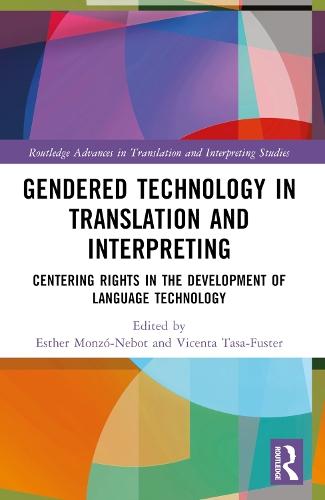Overview
This collection takes an interdisciplinary approach to the study of gendered technology, an emerging area of inquiry that draws on a range of fields to explore how technology is designed and used in a way that reinforces or challenges gender norms and inequalities. The volume explores different perspectives on the impact of technology on gender relations through specific cases of translation and interpreting technologies. In particular, the book considers the slow response of legal frameworks in dealing with the rise of language-based technologies, especially machine translation and large language models, and their impacts on individual and collective rights. Part I introduces the study of gendered technologies at this intersection of legal and translation and interpreting research, before moving into case studies of specific technologies. The cases explored in Parts II and III discuss the impact of interpreting and translation technologies on language professionals, language communities, and gender inequalities, while stressing the future needs of gendered technology, particularly machine translation. Taken together, the collection demonstrates the value of a cross-disciplinary approach in better understanding how language technologies can be harnessed to address discrimination and contribute to growing discussions on gender equality and social justice at the intersection of technology and translation. This book will be of interest to scholars in translation and interpreting studies, gender studies, language technologies, and language and the law.
Full Product Details
Author: Esther Monzó-Nebot ,
Vicenta Tasa-Fuster
Publisher: Taylor & Francis Ltd
Imprint: Routledge
Weight: 0.600kg
ISBN: 9781032736976
ISBN 10: 1032736976
Pages: 314
Publication Date: 28 November 2025
Audience:
College/higher education
,
Tertiary & Higher Education
Format: Paperback
Publisher's Status: Forthcoming
Availability: Not yet available

This item is yet to be released. You can pre-order this item and we will dispatch it to you upon its release.
Reviews
""Gendered Technology in Translation and Interpreting dismantles the myth of neutrality shrouding language technologies, unveiling embedded gender and language hierarchies, and advocates for more equitable technology design and use....Against the surging tides of technology, this volume stands as a levee – forged with empirical rigour, feminist fury, and an unshakeable belief in intersectional justice."" - Minlin Yu, Lecturer in Translation Studies with Chinese Mandarin (School of Modern Languages & Cultures), University of Glasgow ""The compilation effectively highlights how TI technologies risk perpetuating gender inequalities in both their design and use."" - Argelia Peña-Aguilar, Universidad Autónoma del Estado de Quintana Roo | University of Ottawa
Author Information
Esther Monzó-Nebot is Associate Professor in Translation and Interpreting Studies in the Department of Translation and Communication Studies at Universitat Jaume I, Spain. Vicenta Tasa-Fuster is Assistant Professor of Constitutional Law in the Department of Constitutional Law and Political Science and Administration at Universitat de Valencia, Spain.



